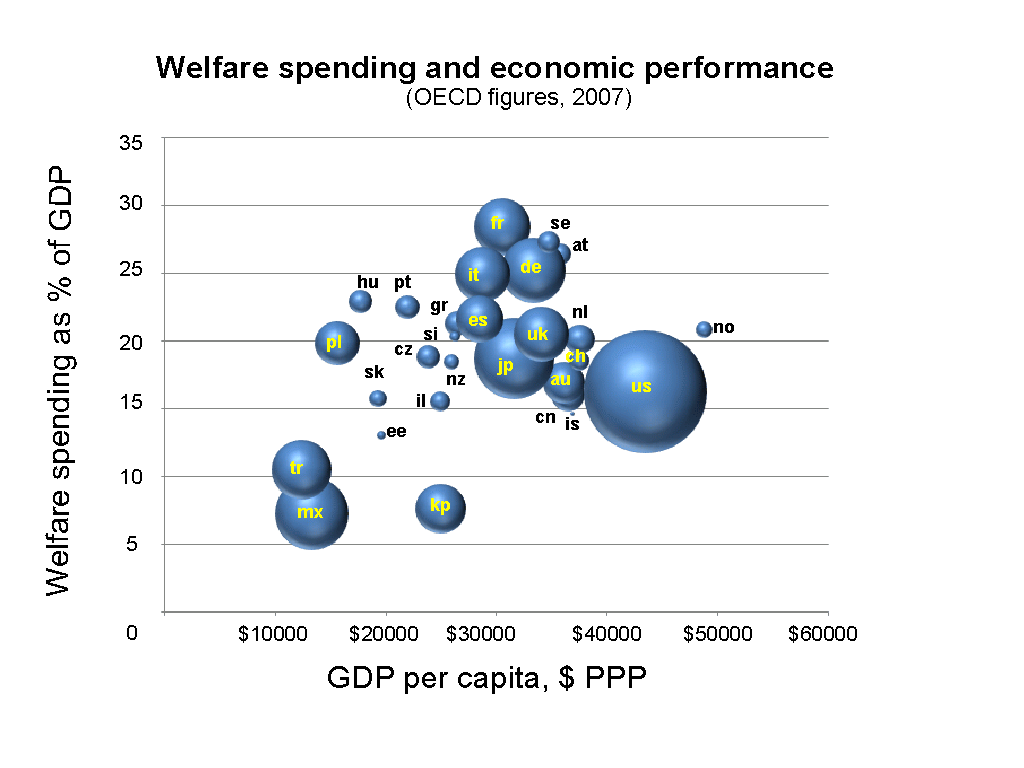The Social Policy Association has just published a collection of essays under the title, “In Defence of Welfare“. The essays chart a long series of problems in the current state of Britain. That is not adequate as a defence of welfare, for two reasons. The first is that they don’t make the positive case for welfare, which is strong and clear. The second is that they don’t counter the narrative that’s been used to undermine the welfare state.
First, let’s consider the positive arguments for welfare. This is from my website:
The basic arguments for collective provision are
- humanitarian. Concerns about poverty and need have been central to many developments.
- religious. Several of the world’s major religions make charity a religious duty. Beyond charity, Catholicism recognises a duty of social solidarity (or mutual social responsibility); Judaism, Islam and Lutheran Christianity require collective responsibility for one’s community.
- mutual self-interest. Many welfare systems have developed, not from state activity, but from a combination of mutualist activities, gradually reinforced by government.
- democratic. Social protection has developed in tandem with democratic rights.
- practical. Welfare provision has economic and social benefits. Countries with more extensive systems of social protection tend to be richer and have less poverty. (The main difficulty of evaluating this is knowing which comes first, wealth or welfare.)
There is scarcely a government in the world that does not recognise the force of these arguments and make some form of collective social provision. The real disputes are not about whether welfare should exist, but about how much provision there should be, and how it should be done.
The second part of defending welfare is to counter the narrative that’s been fabricated against it. In the UK, we’ve been told that
- The welfare state was supposed to be a safety net but it has expanded beyond all reason. Stuff and nonsense. The Poor Law was supposed to be a safety net, and it was widely hated. The Welfare State in Britain was supposed to provide for everyone.

- Welfare spending threatens the economy. This is an assertion with no evidence to back it up. The graph is from my website.
- Welfare spending is out of control. This is plainly untrue: the level of spending on out of work benefits in 2010 was markedly less than in the 1990s, and it has fallen since.
- Welfare spending is profligate. We spend rather less in the UK than many other countries. We’ve been criticised internationally for unemployment benefits that are “manifestly inadequate”.
- Welfare has produced a culture of dependency. The hustings on welfare yesterday were opened by Andrew Neil with the comment that 305,000 people on welfare have never worked. That’s a small minority – there are more than seven million people in receipt of working age benefits, and many of them are working. I’ve not found a clear breakdown of the 305,000, but we know it includes 79,000 student households, along with people who have recently left school, people who have severe disabilities from birth or childhood, and women who had children before they had a job – the average length of dependency for that last group is about 7 years, because many find a new partner. Fewer than 10,000 people have been in receipt of Jobseekers Allowance continually for five years or more, and most of them have worked before. There is no good evidence to support the view that long-term financial dependency is increasing, with one main exception: pensions. So who wants to abolish pensions?
I have a lot more stuff on the website, and in the archives of this blog, because I’ve made many of these points repeatedly. If you don’t know the website, it’s been used by millions of people around the world, and people from 107 countries have read sections in the course of the last seven days; do have a look.
I find myself going to your website frequently, very informative and been so helpful during my social policy course. I respect and admire your intelligence.
Thank you.